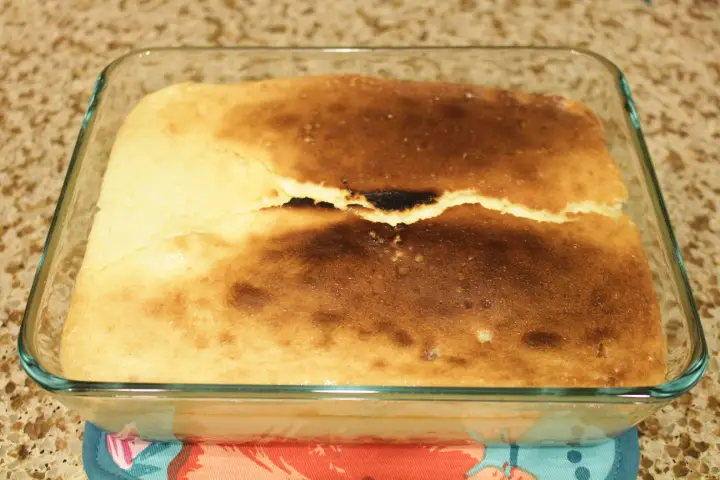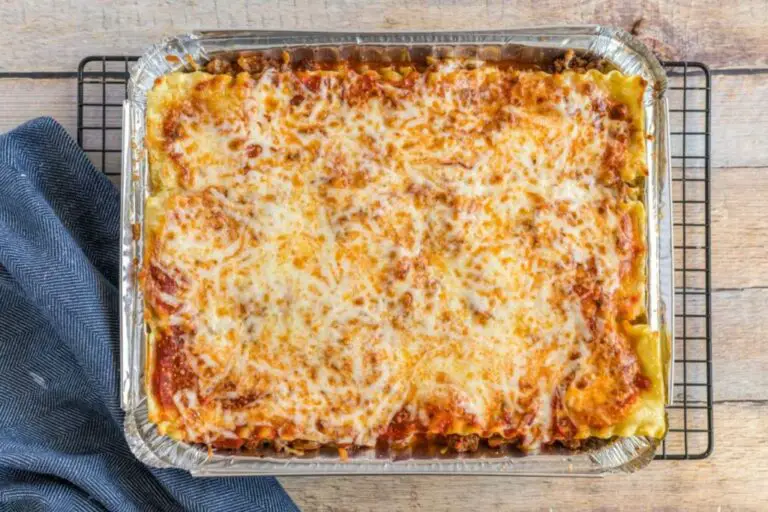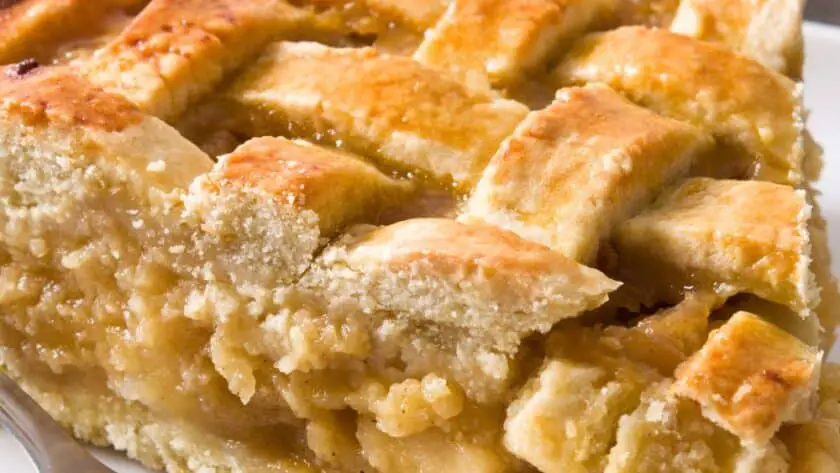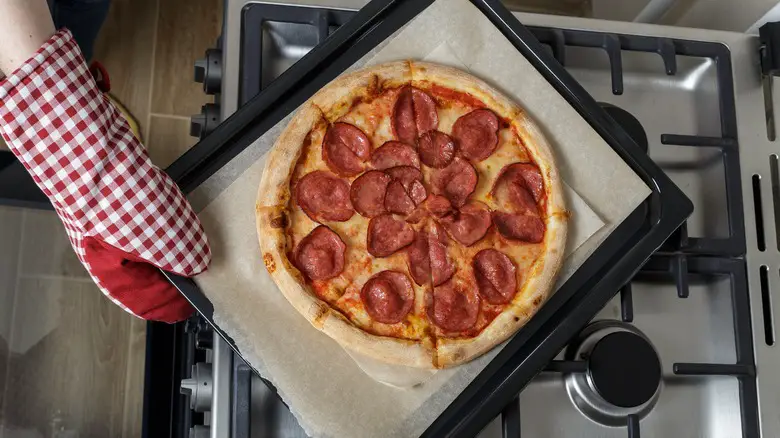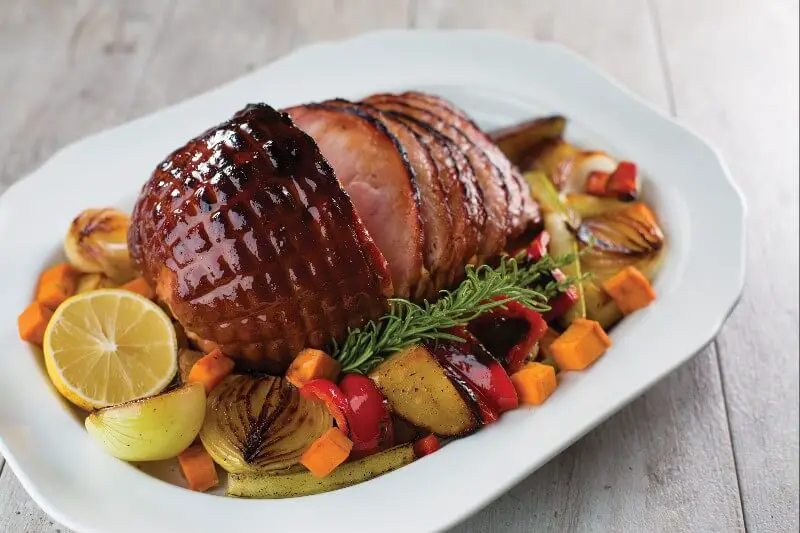Are you tired of using the same rusty old pan to bake a cheesecake? Do you feel confident in switching to your fancy glassware but don’t know if it will end up ruining the cake or your dish? The good news is that yes, baking a cheesecake in a glass pan is actually doable. In this article, we’ll go over everything you need to know about baking a delicious cheesecake in your glass pan.
Understanding Glass Pans
Before we dive into the process of baking the cheesecake altogether, it’s important to understand what glass pans are and how they differ from other types of pans commonly used for baking.
Glass pans are made from tempered but fragile material, which allows them to heat evenly throughout the entire pan. They have some unique benefits that make them ideal for specific recipes like pies or casseroles. One advantage is superior heat conduction; when glass absorbs heat, it distributes it uniformly across the surface of whatever it contains. Another advantage is non-reactivity with acidic ingredients – of course an important feature when making cheese-based dishes where acidity can be high. Lastly, having a crystal clear surface makes it easy to see how the crust is developing.
However, there may be some downsides as well. Due to their fragility they may take more time to preheat than metal or ceramic pans. Also, because they take longer to heat up than other materials used for pans like metal or ceramics do, adjusting your oven’s temperature and baking time are essential when making certain dishes like cheesecakes.
Benefits of Glass Pans
- Superior heat conduction
- Non-reactive with acidic ingredients
- Allows seeing through its surface and checking on browning
Downsides of Glass Pans
- Fragility
- Longer pre-heating time
- Uneven browning on top
Tips for Baking Cheesecakes in Glass Pan
Baking cheesecake in a glass pan comes down to some basic principles. If you follow these tips, you shouldn’t encounter any issues:
Tip 1: Adjust Baking Time & Temperature
Because of the slower heating time, it is necessary to adjust baking time and temperature when preparing cheesecakes or other dishes with this kind of pan. The suggestion usually is setting your oven to 25°F less than what the recipe calls for, and extending cooking time by 15-20 minutes. If you are unsure about your adjustments try using an oven thermometer to confirm that your new temperature measure is accurate.
Also, make sure the oven rack position where you are placing the dish is in the center of your oven so that any irregularities in heat distribution will be minimized as far as possible.
Tip 2: Use a Water Bath or Moisture Pan
Cheesecakes have a tendency to crack if they dry out during cooking, so adding moisture to the equation can make all the difference. One way this can be achieved is using a water bath while baking cheesecake in glass pan; this means putting a pan filled with hot water underneath the actual cheesecake pan before baking. Another method that works well for cakes with very little leavening agent such as cheesecake is simply placing a small bowl of water at the bottom of your oven while cooking occurs. This helps create steam which keeps the environment moist and allows cheesecakes to cook through evenly without drying out on top.
Tip 3: Keep Batter Thickness Consistent
Thick batter may take too long to cook through and cause issues towards the center of the cake while runny batter can lead to cracks on top. So keeping consistency in thickness is key. To ensure consistent thickness, spread filling mixture evenly and gently over crust until each portion has an equal amount between them all.
Common Issues When Baking Cheesecakes in Glass Pans
While the above tips can help mitigate many issues in baking cheesecake in glass pan, some common difficulties that can arise are:
Issue 1: Over or underbaked cake
If the baking time and temperature is not adjusted accordingly while cooking with a glass pan, there is always the risk of getting an overbaked or undercooked cheesecake. So, be vigilant when checking your oven’s thermometer and keep an eye on your desserts as they cook.
Issue 2: Cracked surface on top
When the recipe calls for ingredients like cream cheese which tend to overcook quickly when exposed to high temperatures its possible to end up with a cracked layer of top crust. Moisture is the key to avoiding this problem; since glass heats more slowly it won’t require as much heat as other materials might so keeping an eye on your bake process through a clear surface is critical here.
Issue 3: Uneven color or browning
As I previously mentioned, due to glass’s temperamental traits such as slower heating rates it is important to extend bake time for anything going into this kind of dish- however if not enough water is included during prep then your pieces may brown more unevenly than you would like. Make sure you are monitoring closely that everything has ample chance getting fully cooked through without burning from sticking around too long.
Conclusion
Baking cheesecake in a glass pan does require some extra attention and care, but with these tips, it’s entirely possible to have a delicious cake at the endno matter what ingredient combination you have decided put inside it. Due diligence including adjustment of time/heat components and consistent thickness can ensure ideal bake symmetry when crafting these delicacies!
Q&A
- Q: Is it safe to bake cheesecake in a glass pan? A: Yes, it is safe to bake cheesecake in a glass pan. In fact, many people prefer baking cheesecake in glass pans as it helps prevent the cheesecake from sticking to the bottom of the pan.
- Q: How does baking cheesecake in a glass pan affect the cooking time? A: Baking cheesecake in a glass pan may require longer cooking time than when using metal pans. Since glass pans distribute heat more evenly, they might cause the cheesecake to cook slower and take longer to set.
- Q: Can I use a pyrex dish for baking my cheesecake? A: Yes, pyrex dishes are perfect for baking cheesecakes as they are made with tempered glass which can withstand high temperatures without breaking or cracking.
- Q: Do I need to adjust my recipe if I’m using a glass pan? A: No, you don’t need to adjust your recipe if you’re using a glass pan. Just make sure to keep an eye on your cheesecake towards the end of the cooking time to avoid overcooking or burning.
